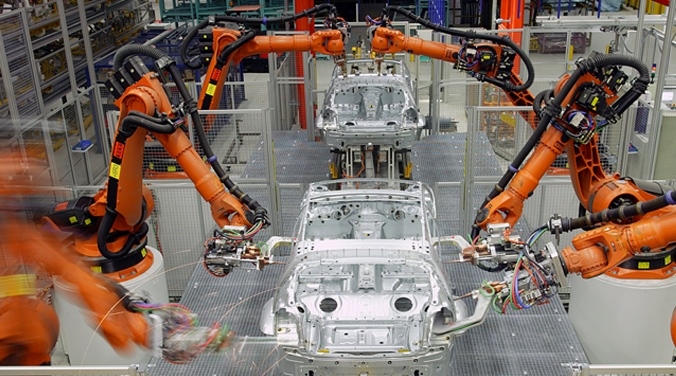Bachelor of Engineering in Mechanical and Aerospace Engineering
Mechanical Engineering involves the application of physics for analysis, design, manufacturing, and maintenance of mechanical systems. Mechanical engineers use core principles to design and analyze machines such as motor vehicles, aircraft, heating and cooling systems, watercraft, manufacturing plants, industrial equipment, robotics, and increasingly medical devices to improve economic performance, leisure activities and the health and well-being of society.
On completion of a Mechanical engineering degree, graduates are able to work in a large number of industries like: manufacturing, mining, electricity and water supply, engineering and management consulting, automotive, aerospace and aeronautical, process industries, electricity generation, and electronics manufacture and applications.
Bachelor of Engineering in Chemical and Materials Engineering
Chemical engineers improve food processing techniques, and methods of producing fertilizers, to increase the quantity and quality of available food.
They also construct the synthetic fibers that make our clothes more comfortable and water resistant; they develop methods to mass-produce drugs, making them more affordable; and they create safer, more efficient methods of refining petroleum products, making energy and chemical sources more productive and cost effective.
Chemical engineers also develop solutions to environmental problems, such as pollution control and remediation.
And yes, they process chemicals, which are used to make or improve just about everything you see around you.
Bachelor of Engineering in Electrical and Computer Engineering
Electrical engineers are meant to be inventive, supervising the manufacture and testing of electrical equipment. Some of this equipment includes electric motors; machinery controls, lighting, and wiring in buildings; radar and navigation systems; communications systems; and power generation, control, and transmission devices used by electric utilities.
Electrical engineers design and operationalize the electrical systems for automobiles and aircraft. Electrical engineers more traditionally have focused on the generation and supply of power, whereas electronic engineers have worked on applications of electricity to control systems or signal processing. Electrical engineers specialize in areas such as power systems engineering or electrical equipment manufacturing. Electronics engineers specialize in areas such as communications, signal processing, and control systems and regularly have a specialty within one of these areas—control systems or aviation electronics.
Bachelor of Engineering in Civil and Environmental Engineering
Civil engineering is the oldest engineering profession and closely related to our daily lives, such as where we live (structural engineering), which road or bus route we take (geotechnical and transportation engineering), how we can get the water from the tap and what our sanitary condition is (Environmental and water resource engineering). Civil engineers build everything we need in the built environment, and make our world better and prettier. Civil engineers are involved in almost every aspect of our daily lives. They shape the environment in which we live on both the micro and macro scales by designing, constructing and operating various types of public and private facilities such as roads, bridges, water & energy systems, ports, railways, airports and residential complexes.

Bachelor of Science in Robotics Engineering
Mechatronics is combination or junction of Electrical, Mechanical, and Computer Science Engineering.
Mechatronics is the closest to Robotics with the slight and main difference in mechatronics systems inputsare provided whereas in robotics systems it acquires the inputs by their own. Robotics Engineering is the interdisciplinary branch of engineering and science that includes mechanical engineering, electrical engineering, computer science, and others. It deals with the design, construction, operation, and use of robots, as well as computer systems for their control, sensory feedback, and information processing.

Bachelor of Science in Computer Science
Computer Science is the study of computers and computational systems. Unlike electrical and computer engineers, computer scientists deal mostly with software and software systems; this includes their theory, design, development, and application. Principal areas of study within Computer Science include artificial intelligence, computer systems and networks, security, database systems, human computer interaction, vision and graphics, numerical analysis, programming languages, software engineering, bioinformatics and theory of computing.




